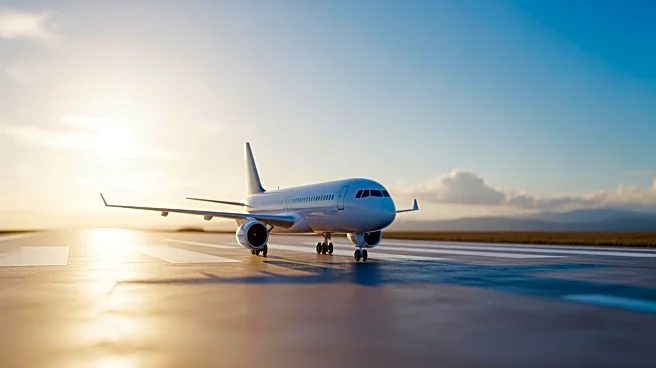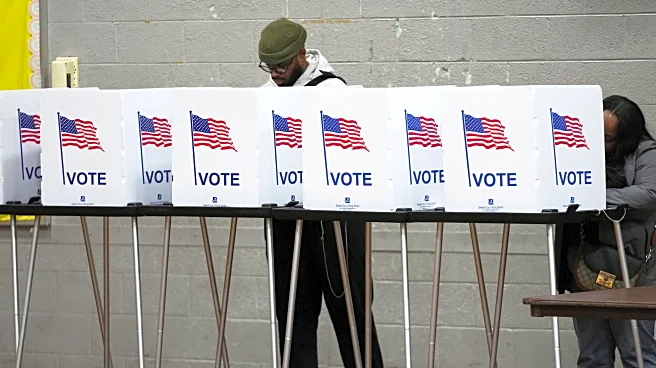What's Happening?
Southwest Airlines has announced a surprise profit for the third quarter of 2025, driven by increased travel demand and higher fares. The airline reported earnings per share of 11 cents, surpassing Wall
Street expectations of a 3-cent loss. Revenue for the quarter reached $6.95 billion, slightly above the anticipated $6.92 billion. Southwest has been adjusting its business model to better compete with rivals, including changes to its seating policy and baggage fees. The company expects unit revenue to rise between 1% and 3% in the fourth quarter, with capacity increasing by 6% compared to the same period last year.
Why It's Important?
The positive earnings report from Southwest Airlines highlights a rebound in travel demand, which is crucial for the airline industry as it recovers from the impacts of the COVID-19 pandemic. The shift in Southwest's business model, including the introduction of seat assignments and baggage fees, indicates a strategic move to enhance revenue streams and compete more effectively with other carriers. This development could influence other airlines to reconsider their pricing and service strategies to capture the growing demand for air travel. The airline's ability to generate record sales in the upcoming quarter could bolster investor confidence and impact stock market performance.
What's Next?
Southwest Airlines plans to continue its strategic adjustments, with the first flights featuring seat assignments expected in the first quarter of 2026. The company aims to maintain its current demand levels through the end of the year, which could lead to further revenue growth. As Southwest adapts its business model, other airlines may follow suit, potentially leading to industry-wide changes in pricing and service offerings. Stakeholders, including investors and competitors, will be closely monitoring Southwest's performance and strategic decisions in the coming months.
Beyond the Headlines
Southwest's decision to abandon its long-standing open seating policy and introduce fees for checked bags marks a significant cultural shift for the airline, which has traditionally marketed itself as a customer-friendly, low-cost carrier. This change reflects broader industry trends where airlines are increasingly focusing on ancillary revenue streams to boost profitability. The move may also affect customer loyalty and brand perception, as passengers adjust to the new policies. The long-term impact on Southwest's market position and customer base will be an area of interest for industry analysts.










